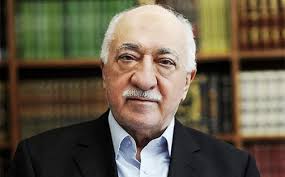Turkish prosecutors on Tuesday demanded two life sentences and an additional 1,900 years in prison for US-based Muslim preacher Fethullah Gulen, blamed by Ankara for masterminding last month’s failed coup.
 Turkish prosecutors on Tuesday demanded two life sentences and an additional 1,900 years in prison for US-based Muslim preacher Fethullah Gulen, blamed by Ankara for masterminding last month's failed coup.
Turkish prosecutors on Tuesday demanded two life sentences and an additional 1,900 years in prison for US-based Muslim preacher Fethullah Gulen, blamed by Ankara for masterminding last month's failed coup.
But in a step back from threats to reintroduce the death penalty after the coup that sparked tensions with the EU, Prime Minister Binali Yildirim said a fair trial would represent a harsher punishment for coup plotters than execution.
Meanwhile Ankara swept ahead with a crackdown that has seen some 100,000 people either detained or lose their jobs, with simultaneous raids against companies in Istanbul suspected of helping to finance the Gulen movement.
Turkish authorities have pointed the finger of blame at Gulen and his supporters in the army for the July 15 military action seeking to oust President Recep Tayyip Erdogan from power.
In a 2,527-page indictment approved by prosecutors in the Usak region of western Turkey, Gulen is charged with "attempting to destroy the constitutional order by force" and "forming and running an armed terrorist group" among other accusations, the Anadolu news agency reported.
The so-called Fethullah Terror Organisation (FETO) -- the name Ankara gives the group led by Gulen -- had infiltrated state archives through its members in the state institutions and intelligence units, according to the indictment.
The group has used foundations, private schools, companies, student dormitories, media outlets and insurance companies to serve its purpose of taking control of all state institutions, it added.
It has also collected funds from businessmen in the name of "donations" and transferred the money to the United States by means of front companies, and by using banks in the United Arab Emirates, South Africa, Tunisia, Morocco, Jordan and Germany, Anadolu reported.
The case dates back to September 2015, even before the failed coup, and had been launched by the Usak prosecutor's office into the financial assets of FETO.